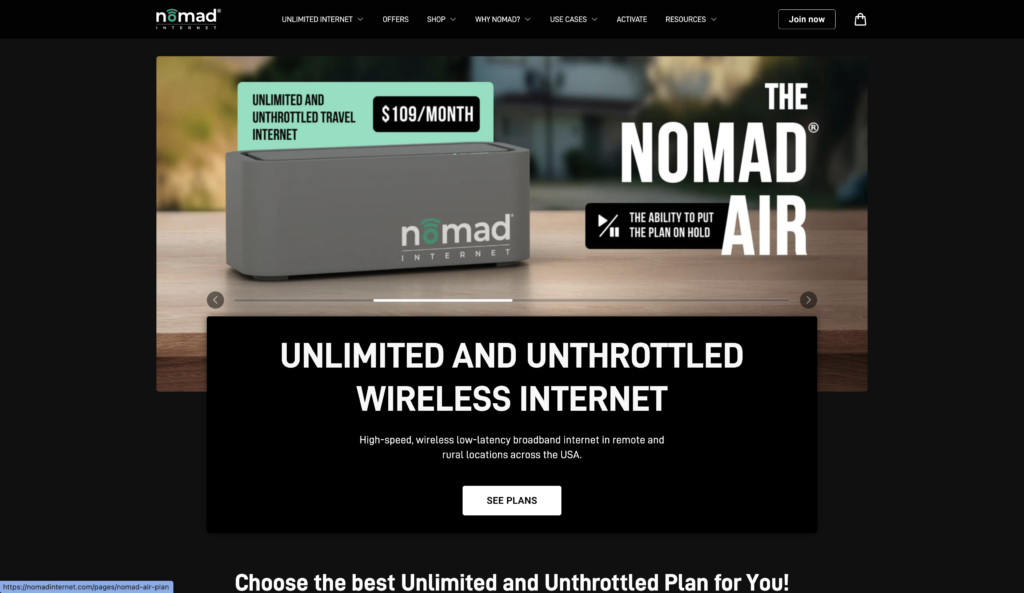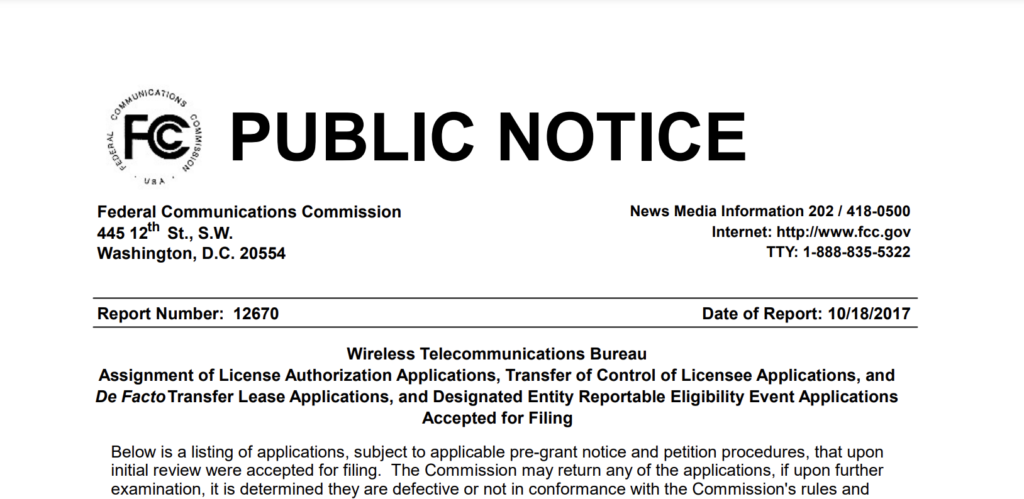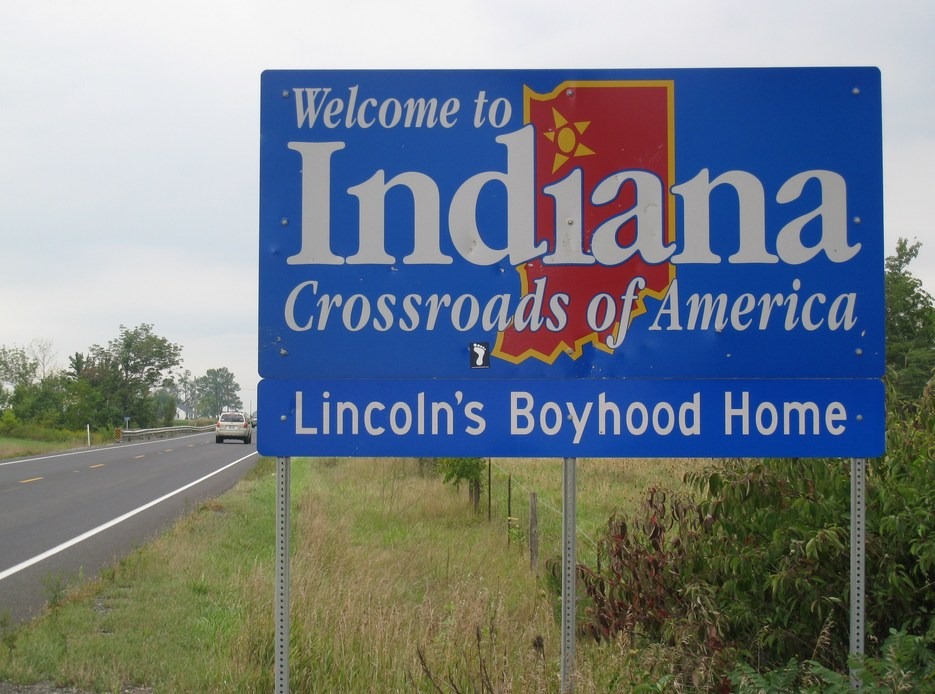Nomad Internet claims to be the nation’s largest wireless internet service provider, promising the ultimate mobile internet solution, but emerging in recent days is only a trail of frustrated customers and disillusioned influencers. But beyond the fray lies the murky world of a third-party reseller, and a troubled past. In this report, we’ll attempt to unravel the deceptions and reveal the truth behind a company, and its CEO, which is not at all what it seems.
We’ve spoken with dozens of customers, influencers, and victims, and we’ve scoured years’ worth of message board posts, public documents, and business registrations to bring you the full, story.

The Mobile Internet Landscape
For the last several years, the nomadic lifestyle has been growing, and home-replacement type internet—offering large amounts or even unlimited data—has been crucial for many living full or part-time on the road. Major cell companies have offered unlimited hotspot data, only to pull it back due to overwhelming demand and strain on their networks.
The networks all seem to underestimate the number of people who would be interested in such plans and the networks just can’t handle the traffic. There was the Togo Roadlink, and ZTE Mobley for instance offering unlimited 4G AT&T internet access, directly through AT&T. Both were discontinued rather quickly. Companies offered data on iPads, or for business plans, or for restricted residential use, but ended offers of unlimited data to the general public.
That opened a space for third-party resellers to fill the void.

What are Third-Party Resellers?
Third-party resellers like Nomad Internet claim to offer cellular data plans that seem too good to be true, and as with any deal that seems too perfect, there’s often more to the story. Chris Dunphy and Cherie Ve Ard from the Mobile Internet Resource Center caution that “Many resellers are just marking up business plans that most any informed consumer can get directly, usually cheaper. Or they are offering plans that metaphorically ‘fell off the back of a truck.'”
Essentially, plans that aren’t supposed to be resold or are only supposed to be used in certain devices. But behind the scenes – these plans are usually nothing special.
Chris and Cherie say that reseller plans CAN work great – until they don’t. The carriers almost always catch on – and hundreds or thousands of reseller customer lines end up getting disconnected overnight without warning. The biggest excuse is “the sim card stopped working and we had to send a new one.” When in reality, the sim card wasn’t broken, the carrier canceled it.
Even resellers with legitimate contracts from the cell carrier can get the rug pulled out from under them, according to Chris and Cherie. After all, the reseller is not the carrier and they don’t call the shots.
Nomad Internet has marketed itself as the largest of these third-party resellers. Recently, the company launched a marketing blitz, advertising its Nomad Air Kit all over social media. The company hired dozens of influencers, providing them with review units plus a commission on referrals or a flat fee for sharing Nomad Internet in videos and social media posts. However, as customers began to share their negative experiences with Nomad in post comments and in emails influencers started to question their association with the company.
YouTube Reacts
Robyn Barret of Creativity RV kicked off a cascade of influencer fallout by posting a video revoking her endorsement of Nomad. Eric Jacobs, known on YouTube as Nomadic Fanatic, followed suit, sharing his interactions with Nomad Internet CEO Jaden Garza, revealing that Garza said he was stepping down as CEO and revoking Jacobs’ contract. Other YouTube channels followed, recounting various stories of promises made and promises broken.
Charity DeVries of Grateful Glamper detailed to RV Miles her experience with Nomad Internet, citing issues with false advertising, lack of clarity in their ability to pause services, and poor communication from the company.
She said the product always worked but discovered what they received was not actually what customers were getting, in fact, what they reviewed would be a $200 upgrade. She also said the company led her to believe the service could be paused when people aren’t traveling, a feature that was overstated. DeVries says they received a flood of negative comments on both their video and blog post. She goes on the state Nomad Internet agreed to provide a dedicated customer service rep to moderate all comments. A rep was made available for a brief amount of time and then the company said it was too expensive.
DeVries continued, claiming Jaden Garza refused to sign their advertising agreement, insisting on working in a referral marketing platform called GRIN, where DeVries says the terms were changed without notice. They approached Nomad about making things right for their customers, and Nomad’s response, according to DeVries, was to sever the relationship. DeVries says they had no choice but to delist the video and pull down their blog post.
Influencers like Grateful Glamper had only begun a relationship with Nomad Internet, but others like Nomadic Fanatic had been with them for years.
We’ve spoken with dozens of current and former customers of Nomad Internet who provided evidence of customer service calls and emails going unanswered. Along with months of attempts to repair or cancel service. Or fix double billing issues, a very common theme with the company. In some instances, Nomad resolved the issues, but many are still attempting to seek answers and find a resolution.


In December of 2022, Nomad initiated a partnership with Verizon, and a large number of their plans stopped working without warning. However, there’s more to the story than just poor customer service and broken promises. Many YouTubers said it was their audience that pointed them to a potentially shady past that involved prison time for Nomad’s CEO, Jaden Garza.
So who is Nomad Internet’s CEO?
Jaden Garza, founded Nomad Internet in 2017 and has been promoting himself as a tech entrepreneur since. There are dozens of pay-to-play and self-published articles about him on the internet, sharing things like his favorite entrepreneurial tips and why “WeCrashed,” the documentary on the WeWork scandal, is must-see-tv. Along with his wife Jessica, they have a company called HXO, which seems to be an umbrella for many of their companies. They describe it as “a community of brands, of people, of shared stories and ideas.” However, information about Jaden David Garza pre-2017 is scarce, raising questions about his true identity.

Could Jaden Garza be living as someone else?
A closer look reveals a striking resemblance between Jaden Garza and Homero “Joshua” Garza, the former CEO of a Vermont-based company called GAW High-Speed Internet.
GAW High-Speed Internet was essentially an ISP on autopilot but touted 30,000 subscribers. According to news reports from the time, when thousands of subscribers lost internet and even their email addresses that were sold to them through GAW, officials couldn’t even figure out how to reach an owner. What’s more, GAW was a recipient of a government grant to provide rural internet. Joshua Garza eventually returned the grant money to the Vermont Telecommunications Authority as part of a settlement but had already moved on to something much bigger.
Joshua Garza and the cryptocurrency ponzi-scheme
Between 2014 and 2015, Garza founded and operated several Connecticut-based businesses – GAW Miners, ZenMiner, and ZenCloud — that sold bitcoin-mining hardware. None of these businesses would have been illegal if it hadn’t been for a series of misleading and false statements about the companies’ capabilities, partnerships, and financial backing, according to the FBI. They say Garza fraudulently drew investors to his enterprises and eventually resorted to Ponzi scheme tactics to delay detection of his fraud.
“Garza got into this market at the right time,” said Special Agent Mark Munster. “The interest and enthusiasm for these currencies was high, and he was able to market himself and the business very effectively. The problem was that much of what Garza was marketing was a lie.”
The FBI and court records say that the first iteration of Garza’s companies sold the computer equipment needed to mine Bitcoin or other virtual currency. Munster said Garza’s business started as a legitimate operation with a clever hook—he wanted to make it easier for people who didn’t have a technical background to access cryptocurrencies.
The initial currency-mining equipment business turned into one that offered to purchase a currency miner on the customer’s behalf and set it up at the GAW Miners data center. The customer could then direct the miner’s activities and reap its profits. Garza then moved into selling shares, or “hashlets,” that represented a percentage of the profits being made by his company’s purportedly robust bitcoin mining efforts. These hashlets, Garza assured investors, would always be profitable.
The FBI says that mining bitcoins at the volume needed to generate the type of value Garza was promising requires a staggering amount of computing power. These powerful computers are expensive, as is the electricity required to run them. “There were data centers,” said Munster, “but not nearly the capacity that they were representing.” Without the actual infrastructure to support the shares he was selling, returns fell far short of what was promised to investors, and Garza began using new investments in the company to pay returns to others.
During this time, Garza also began selling his own virtual currency called PayCoin, which the SEC says he failed to properly register before offering to the investing public. To encourage investors to purchase this new currency, Garza said his company had a financial reserve of $100 million that they would use to prop up the price of PayCoin to ensure it would never fall below $20 per unit. The FBI says he also claimed partnerships with major corporations like Target and Amazon. In truth, the corporate partnerships did not exist, there was no $100 million reserve, and the value of PayCoin quickly plummeted.
Between selling nearly worthless hashlets and the tanking value of PayCoin, Garza defrauded people worldwide of millions.
Prompted by investor complaints, the SEC conducted an investigation and obtained an injunction against Garza and his firms. Garza’s conduct, however, had not only violated civil securities laws but criminal ones as well, so the FBI initiated its own investigation.
Munster said it was easy to see where some of the money was going: “Garza had a Ferrari, a Lamborghini, and a Maserati. He went to Las Vegas in a private jet and took his employees out on the Vegas strip. He was definitely caught up in the lifestyle of being a start-up mogul.”

Thousands of duped investors lost their savings to Garza’s lifestyle. But according to Munster only several hundred of them came forward to investigators. Many made small investments; many were overseas, Munster explained.
Garza’s virtual currency scam caused losses of over $9 million. After pleading guilty to one count of wire fraud, Garza was sentenced to 21 months in prison and three years of supervised release. He was also ordered to pay restitution to his victims.
Since his release from prison in 2020, Joshua Garza has seemingly disappeared.
An Online Trail of Connections Suggests Jaden Garza May Be Joshua Garza
There is an army of people who were scammed by Joshua Garza in crypto forums and on Reddit who have been trying to figure out what Joshua Garza has been up to since he was released from prison in 2020, to begin his three years of supervised release.
GEV IO, LLC is the name of the company the influencers we talked to received payments from and is a trademark holder for Nomad Internet devices like the Nomad Ark.
Open Corporates links GEV IO with an alternate name of “Geniuses at Work Corp” or another GAW. Even though the first GAW Wireless internet stood for Great Auk Wireless, Garza confirmed in interviews that GAW Miners was short for “Geniuses at Work” Miners.

An FCC Public Notice of Applications for license transfer lists a license transfer from Joshua Garza’s GAW High-Speed Internet to GEV IO LLC. GEV is listed publicly under Jessica Garza’s name and makes payments for Nomad Internet, and owns its trademarks.


If Jaden Garza IS Joshua Garza, so what?
Can’t an ex-con re-enter society after paying his debts and lead a normal life? But according to the many Garza stole money from he hasn’t paid his debts. He was ordered to pay over $9 million in restitution as a part of his conviction, and his scam victims tell us only a few small payments have come through. The question then arises: is Jaden Garza hiding his true identity to conceal assets?
An extravagant lifestyle
Jaden, along with his wife Jessica, lead an extravagant lifestyle. Letting their companies own their home and hire household staff. The Garzas live in a Texas hill country home, which according to Zillow is valued at over 1.1 million dollars. They don’t own the home, it was sold to an LLC. We found the address through Jessica Garza’s director listing for the Garza’s HXO LLC in 2022.

It’s important to note there is another entrepreneurial Jessica Garza who lives in the same town and owns multiple LLCs. That Jessica Garza is in no way connected with this story.
In order to confirm the Garzas live at this address, which we have redacted and reported to authorities, we first located the house and then confirmed it was sold in June 2021. The house was sold to a company called Jappa and Jaga Management LLC. Jappa and Jaga Management is registered in Wyoming, but with a mailing address at the same mailbox store, Nomad Internet uses. We found Jessica Garza’s name as a signatory on a filing for the LLC, and we matched photos from the Zillow listing with a photo on a Facebook page for a Jaden and Jessica Garza.


The Garzas advertised on ZipRecruiter.com for a housekeeper for the quote “Garza Estate,” under their HXO LLC — a job that sounds like much more than a housekeeper — with responsibilities such as managing retail accounts and supplies for the estate, grocery shopping, chauffeuring the family, personally handling “high priced” clothing and being responsible for its mending, working with the Butler to always keep shoes from of dirt and grime. Additional compensation in the post included free Nomad Internet service.
They’ve also advertised for a personal assistant for Mr. Garza, who is tasked with booking travel, chauffeuring, planning parties, and mixing cocktails.
Contacting Mr. Garza
We have spoken directly to Mr. Garza in the past, or at least someone from Nomad Internet writing under Garza’s name. During Nomad Internet’s major campaign blitz earlier this year, we received numerous requests to work as “influencers” with the company, which we declined, along with several press releases – the most recent press release announced their internet kit vending machines which will allow you to check out an internet kit for up to a week. Will it come to fruition? Or is it like the Nomad Ark modem that was announced in January but hasn’t been released? Nomad Ark, according to the press release at the time, was going to revolutionize mobile internet. It’s now listed as archived on their site.
I have contacted Mr. Garza twice for a response to the allegations in this story. The responses received were from his criminal defense attornies declining to comment.
After RV Miles reached out to Mr. Garza, the “team” page showing Robyn Weber as the new CEO of Nomad Internet was taken down from the company’s website. The Garzas’ joint Facebook account with the photo of their home’s entryway was deleted.
The Aftermath: Responsibility of content creators in due diligence
The content creators we spoke to for this story were all angry that they and their audience had been taken advantage of by Nomad Internet. Most had only recently begun working with the company, and either just accepted the equipment and shared that it worked well for them, or they had heard about past issues with the company and were sold a bill of goods about how they’d changed, using the claim that Nomad is becoming the largest wireless service provider in the US, and official partners with Verizon to drive home the point.
Still, most creators made a mistake and realize it. It’s not enough to try a company’s product and tell your audience it works, or worse, assert that it’s the “best option” available. Nomad Internet is not special; it is just one in a line of many third-party resellers.
Some creators did not handle this situation well, and most wish they’d handled it differently. But most were also duped by a con man and thought they were legitimately sharing their honest experiences with a product.
What We Suggest
There is no magic bullet mobile internet option out there. They all have issues. We carry a T-mobile hotspot, a legacy AT&T unlimited plan that is no longer available, Verizon phones with hotspot data, and Starlink. Starlink is now our powerhouse internet, providing the best speeds and bandwidth most of the time, although it can slow down during busy periods in busy areas – and they also have pretty terrible customer service, though it doesn’t involve anything shady like overcharging or double billing.
None work everywhere, and if 100% uptime is critical to you, you need multiple options and need to look at the places you are traveling to and see if there is cell service available or a clear shot of the sky for Starlink.
Companies like T-mobile now offer their “home internet” wireless service, which can be moved about the country for far less money than third-party providers. There are many options out there, and you can find a wealth of information from experts like the folks at the Mobile Internet Resource Center, who we’d like to thank for their help with this story.
We’d also like to thank Jamie Schumacher for her help; you can find her new podcast Letters From the Road on any podcast app.
If you have a story about Nomad Internet you’d like to share, we hope you’ll leave a comment or you can email us anonymously at editor@rvmiles.com.







